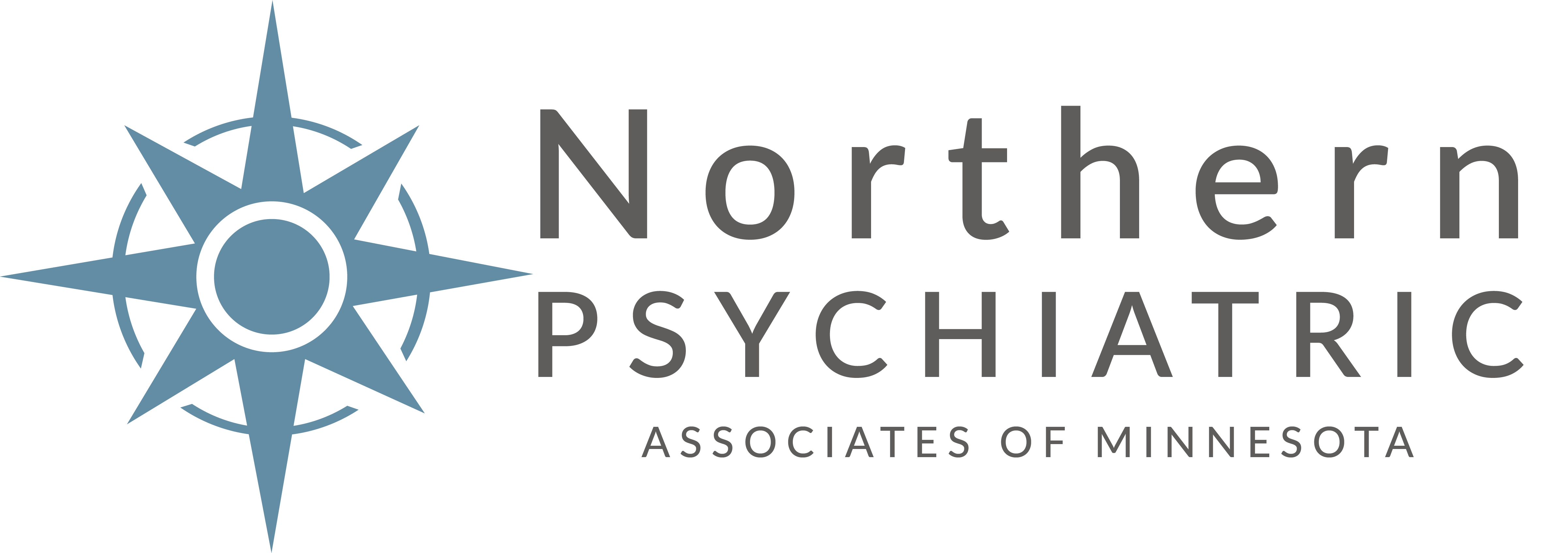Depression Treatment in the Brainerd Lakes Area

What Is Depression?
Depression (major depressive disorder or clinical depression) is a common but serious mood disorder. It causes severe symptoms that affect how you feel, think, and handle daily activities, such as sleeping, eating, or working. To be diagnosed with depression, the symptoms must be present for at least two weeks.
What Are Common Depression Symptoms?
Not everyone who is depressed experiences every symptom. Some people experience only a few symptoms while others may experience many. Several persistent symptoms in addition to low mood are required for a diagnosis of major depression, but people with only a few – but distressing – symptoms may benefit from treatment of their “subsyndromal” depression. The severity and frequency of symptoms and how long they last will vary depending on the individual and his or her particular illness. Symptoms may also vary depending on the stage of the illness.
If you have been experiencing some of the following signs and symptoms most of the day, nearly every day, for at least two weeks, you may be suffering from depression:
-
Persistent sad, anxious, or “empty” mood
-
Feelings of hopelessness, or pessimism
-
Irritability
-
Feelings of guilt, worthlessness, or helplessness
-
Loss of interest or pleasure in hobbies and activities
-
Decreased energy or fatigue
-
Moving or talking more slowly
-
Feeling restless or having trouble sitting still
-
Difficulty concentrating, remembering, or making decisions
-
Difficulty sleeping, early-morning awakening, or oversleeping
-
Appetite and/or weight changes
-
Thoughts of death or suicide, or suicide attempts
-
Aches or pains, headaches, cramps, or digestive problems without a clear physical cause and/or that do not ease even with treatment
What Are Different Types of Depression?
Persistent Depressive Disorder
(Also called dysthymia) is a depressed mood that lasts for at least two years. A person diagnosed with persistent depressive disorder may have episodes of major depression along with periods of less severe symptoms, but symptoms must last for two years to be considered a persistent depressive disorder.
Postpartum Depression
Postpartum depression is much more serious than the “baby blues” (relatively mild depressive and anxiety symptoms that typically clear within two weeks after delivery) that many women experience after giving birth. Women with postpartum depression experience full-blown major depression during pregnancy or after delivery (postpartum depression). The feelings of extreme sadness, anxiety, and exhaustion that accompany postpartum depression may make it difficult for these new mothers to complete daily care activities for themselves and/or their babies.
Psychotic Depression
Psychotic depression occurs when a person has severe depression plus some form of psychosis, such as having disturbing false fixed beliefs (delusions) or hearing or seeing upsetting things that others cannot hear or see (hallucinations). The psychotic symptoms typically have a depressive “theme,” such as delusions of guilt, poverty, or illness.
Seasonal Affective Disorder
Seasonal affective disorder is characterized by the onset of depression during the winter months when there is less natural sunlight. This depression generally lifts during spring and summer. Winter depression, typically accompanied by social withdrawal, increased sleep, and weight gain, predictably returns every year in seasonal affective disorder.
Bipolar Disorder
Bipolar disorder is different from depression, but it is included in this list because someone with bipolar disorder experiences episodes of extremely low moods that meet the criteria for major depression (called “bipolar depression”). But a person with bipolar disorder also experiences extreme high – euphoric or irritable – moods called “mania” or a less severe form called “hypomania.”
When to See A Doctor For Depression?
If the signs and symptoms of Depression listed above resonate with you, and you think you may have depression start by making an appointment with a specialist. Northern Psychiatric Associates has expert practitioners that will not only be able to provide a diagnosis but start the treatment process. Our providers specialize in the treatment of Depression and will get you on the path to recovery. To schedule an appointment please click here.
Depression Treatment Options
Depression, even in the most severe cases, can be treated. The earlier that treatment can begin, the more effective it is. Depression is usually treated with medications, psychotherapy, or a combination of the two. If these treatments do not reduce symptoms, electroconvulsive therapy (ECT) and other brain stimulation therapies may be options to explore.
Quick Tip: No two people are affected the same way by depression and there is no “one-size-fits-all” treatment. It may take some trial and error to find the treatment that works best for you.
Medications
Antidepressants are medicines that treat depression. They may help improve the way your brain uses certain chemicals that control mood or stress. You may need to try several different antidepressant medicines before finding the one that improves your symptoms and has manageable side effects. A medication that has helped you or a close family member in the past will often be considered.
Psychotherapies
Several types of psychotherapy (also called “talk therapy” or, in a less specific form, counseling) can help people with depression. Examples of evidence-based approaches specific to the treatment of depression include cognitive-behavioral therapy (CBT), interpersonal therapy (IPT), and problem-solving therapy. More information on psychotherapy is available on the NIMH website and in the NIMH publication Depression: What You Need to Know.
Brain Stimulation Therapies
If medications do not reduce the symptoms of depression, electroconvulsive therapy (ECT) may be an option to explore. Based on the latest research:
-
If Medications do not reduce the symptoms of depression, electroconvulsive therapy (ECT) or Transcranial Magnetic Stimulation may be an option to explore. Based on the latest research
-
Transcranial Magnetic Stimulation (TMS) is an outpatient noninvasive, non-pharmacological FDA-approved treatment for major depression.
-
-
ECT can provide relief for people with severe depression who have not been able to feel better with other treatments.
-
Electroconvulsive therapy can be an effective treatment for depression. In some severe cases where a rapid response is necessary or medications cannot be used safely, ECT can even be a first-line intervention.
-
Once strictly an inpatient procedure, today ECT is often performed on an outpatient basis. The treatment consists of a series of sessions, typically three times a week, for two to four weeks.
-
ECT may cause some side effects, including confusion, disorientation, and memory loss. Usually, these side effects are short-term, but sometimes memory problems can linger, especially for the months around the time of the treatment course. Advances in ECT devices and methods have made modern ECT safe and effective for the vast majority of patients. Talk to your doctor and make sure you understand the potential benefits and risks of the treatment before giving your informed consent to undergoing ECT.
-
ECT is not painful, and you cannot feel the electrical impulses. Before ECT begins, a patient is put under brief anesthesia and given a muscle relaxant. Within one hour after the treatment session, which takes only a few minutes, the patient is awake and alert.
Let's Chat.
If you have a question for the Northern Psychiatric Associates staff, or if you would like to begin the process of scheduling an appointment, give us a call and we would be happy to help you out!

